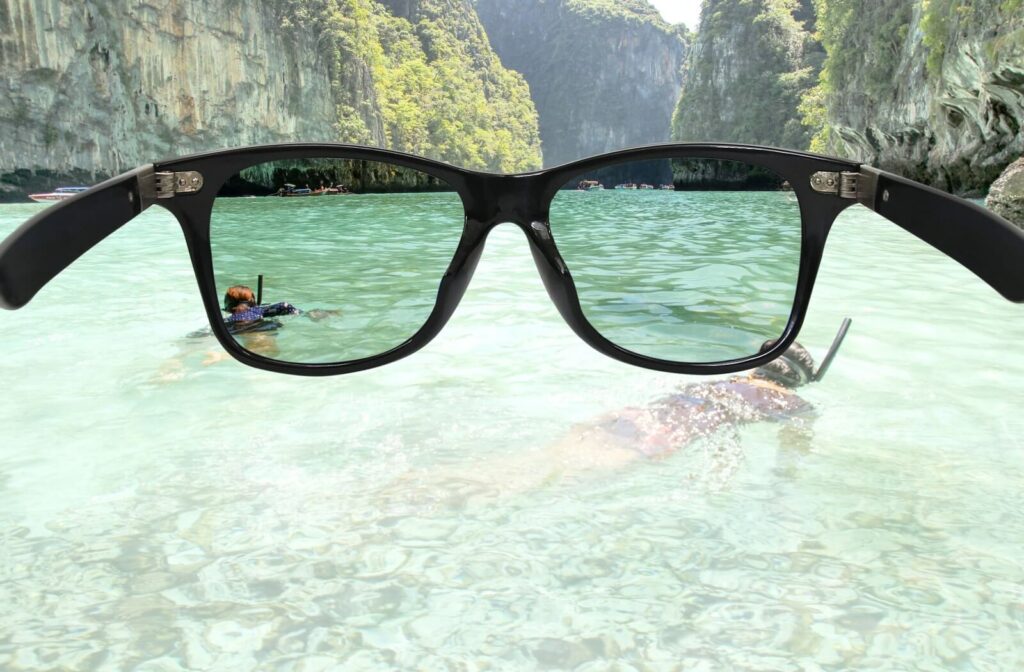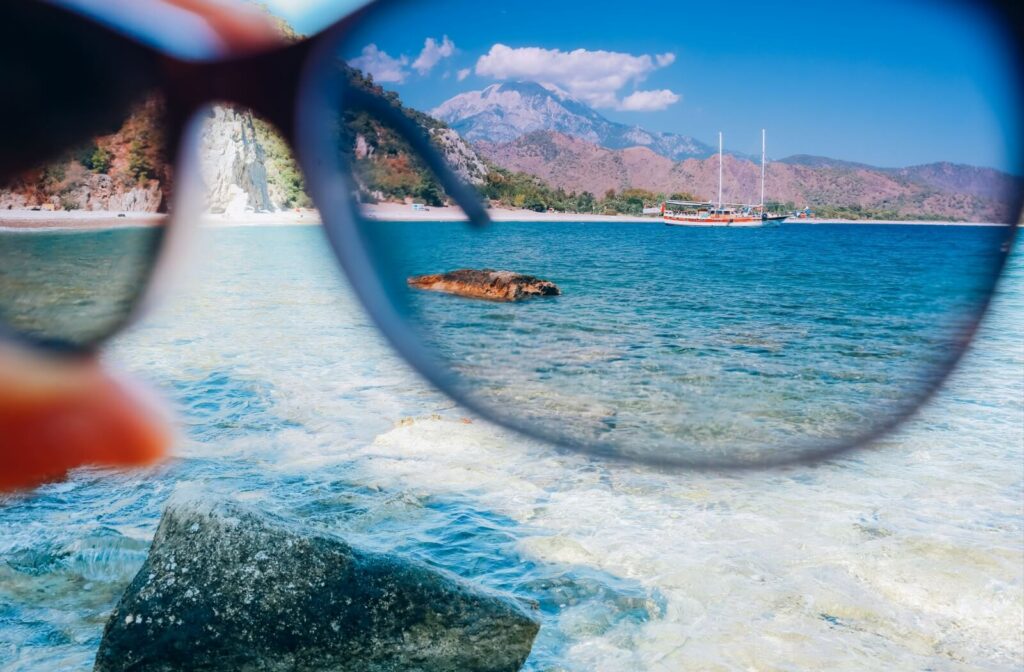With summer in full swing, many of us spend more time outside. Naturally, we turn to our favorite sunglasses to help protect our eyes from the sun, and polarized sunglasses have been gaining popularity.
Polarized sunglasses are not necessarily better or worse for your eyes from a health standpoint, but because they reduce glare, they can help reduce eye strain and improve your vision and safety outdoors.
What Are Polarized Sunglasses?
Polarized sunglasses have a special filter that blocks horizontal light waves off surfaces like water, snow, and roads while still allowing vertical light waves to pass through, reducing glare and improving visibility. Harsh glare can be distracting and even dangerous in certain situations, like driving or participating in outdoor sports.
Beyond glare reduction, polarized lenses can improve visual clarity, contrast, and color vibrancy. This is especially beneficial for those who spend a lot of time near water, as the filter can enhance underwater visibility and help you see fish and other objects more clearly.
Polarized sunglasses are also popular among individuals who suffer from light sensitivity or eye conditions such as cataracts or macular degeneration. The glare reduction can improve overall visual comfort.
Are There Downsides to Polarized Sunglasses?
Polarized lenses may not be suitable for all activities, such as skiing or snowboarding, where flat light conditions require increased contrast and depth perception to see ice.
They may also make it harder to see LCD screens because the polarized filter blocks light from specific directions and can block the light emitted from your phone screen.
You shouldn’t use polarized sunglasses if flying a plane or operating heavy machinery with LCD displays. The polarized coating can make the instruments too hard to see to operate the vehicle safely.
Do Polarized Sunglasses Block UV Light?
Not all sunglasses, polarized or not, offer UV protection. When purchasing sunglasses, always check for a label indicating 100% UVA and UVB protection.
Look for sunglasses that boast both polarization and complete UV blocking to make sure your eyes are properly protected.

Does the Color of the Lens Matter?
Sunglasses come in all kinds of colors, but does it actually matter? You might be surprised to learn that, yes! The lenses’ color can make a big difference in how you see. The right tint can transform your outdoor experience, enhancing contrast and reducing glare.
Gray
Gray lenses are the classic sunglass option for a reason. They offer a neutral color perception, meaning they won’t distort the colors you see. They’re a versatile choice for any activity or light condition, making them a fantastic everyday choice.
Brown
Brown lenses are like nature’s built-in contrast enhancer. They enhance warm colors and are great at cutting through haze and fog, making them a popular choice for driving, golfing, and other outdoor activities where depth perception is key.
Green
Green lenses offer a nice balance between gray and brown. They reduce glare while providing contrast enhancement and brightening shadows. Many people find green lenses to be easy on the eyes, making them a comfortable choice for extended wear.
Yellow
Yellow lenses are excellent for low-light conditions. They enhance contrast and boost visibility in foggy or overcast weather, and they are great for early morning or late afternoon activities. They help you see details that might otherwise be hidden and can be an excellent choice for gamers, pilots, and hunters.
Pink & Purple
Pink and purple lenses are fashionable and functional. In addition to being unique and pretty, they can help reduce eye strain and light sensitivity in certain lighting conditions.
Blue
Blue lenses are trendy, but they can help reduce glare and provide a calming effect. They’re often used with polarized lenses to enhance the overall look.
How to Care for Your Polarized Sunnies
If you invest in quality sunglasses, you’ll want to keep them safe and in good condition. Here are some tips:
- Use a soft, microfiber cloth to gently wipe away smudges and fingerprints. Avoid harsh chemicals, paper towels, or your shirt, as these can scratch the lenses. A quick rinse with lukewarm water can help remove stubborn dirt.
- Store your sunglasses in a hard case to protect them from scratches and damage. Avoid leaving them on dashboards or other hot surfaces, as extreme temperatures can warp the frames.
- Use both hands to avoid bending the frames when putting on or taking off your sunglasses.
Where Do I Find Polarized Sunglasses?
If you’re interested in polarized sunglasses, our eye care team at Precision Eye Care is happy to help you choose the best style and color for your needs! For more information, book an appointment with us today.





